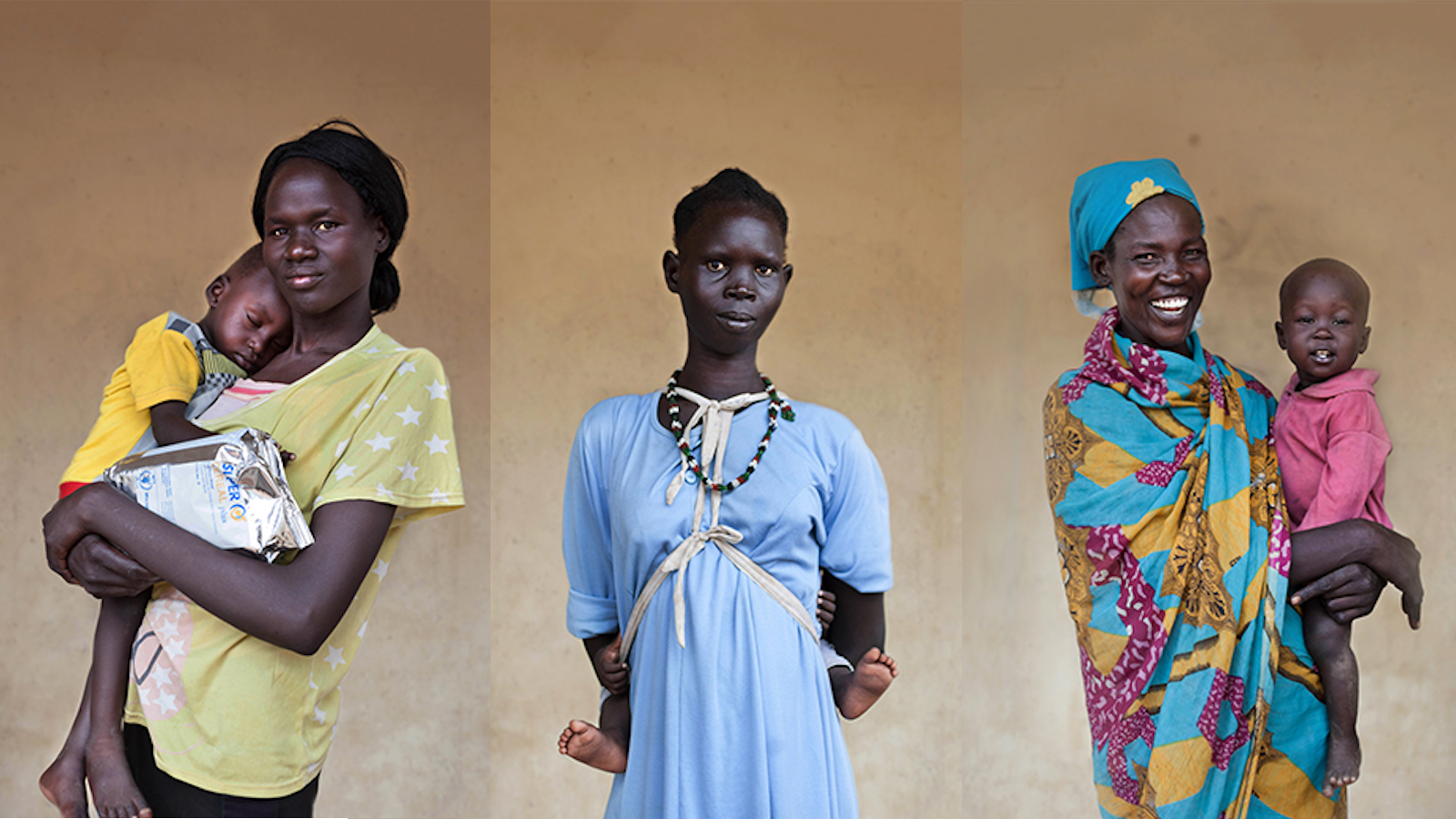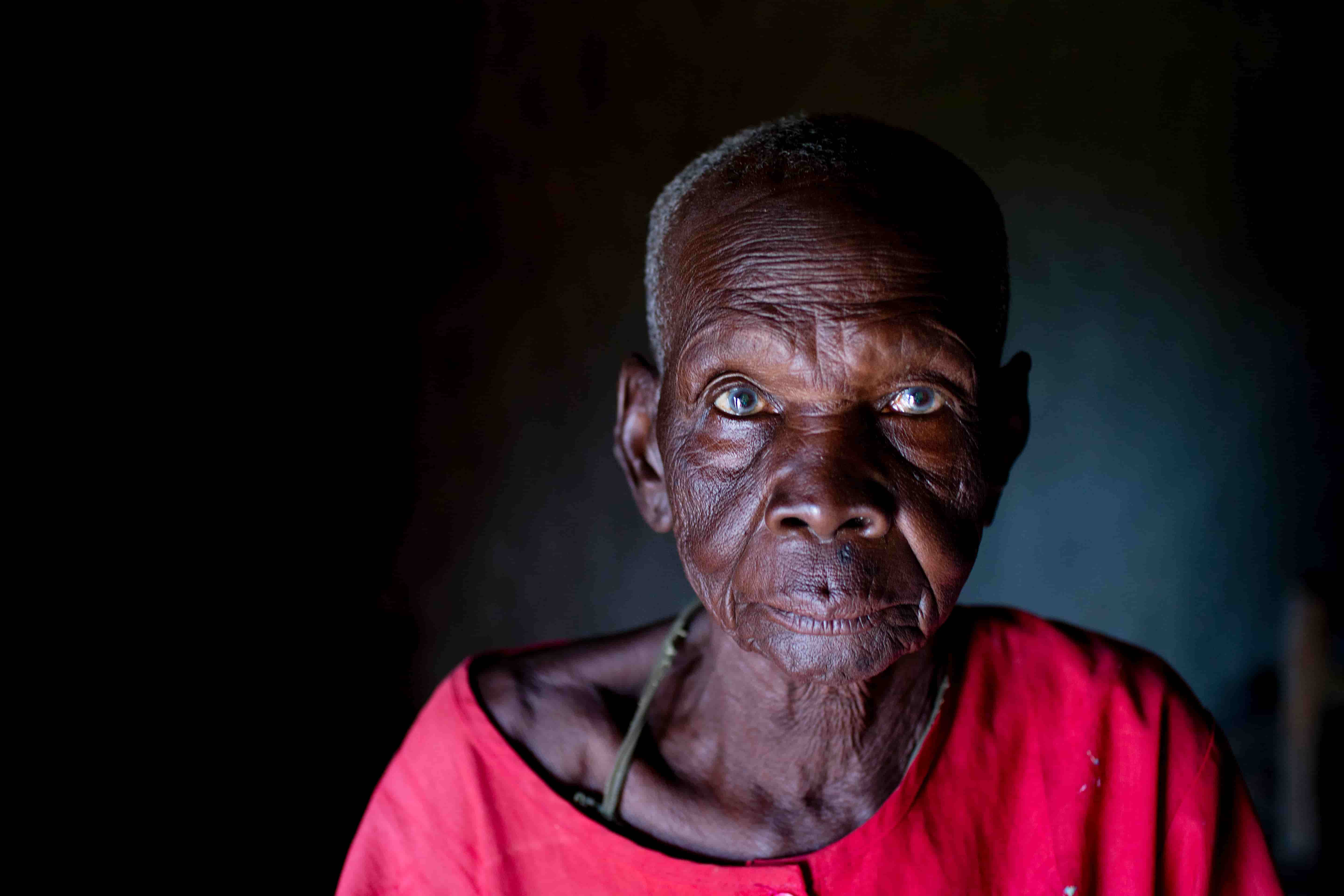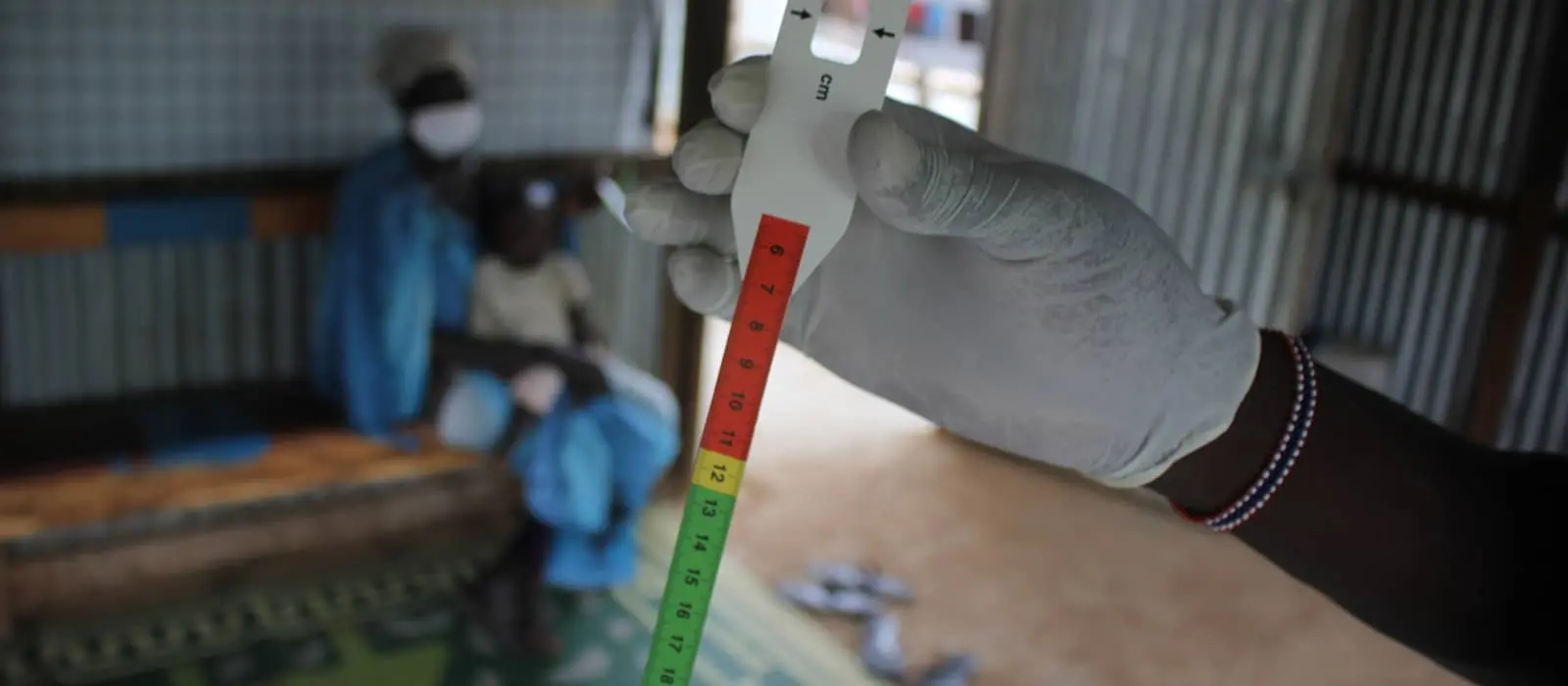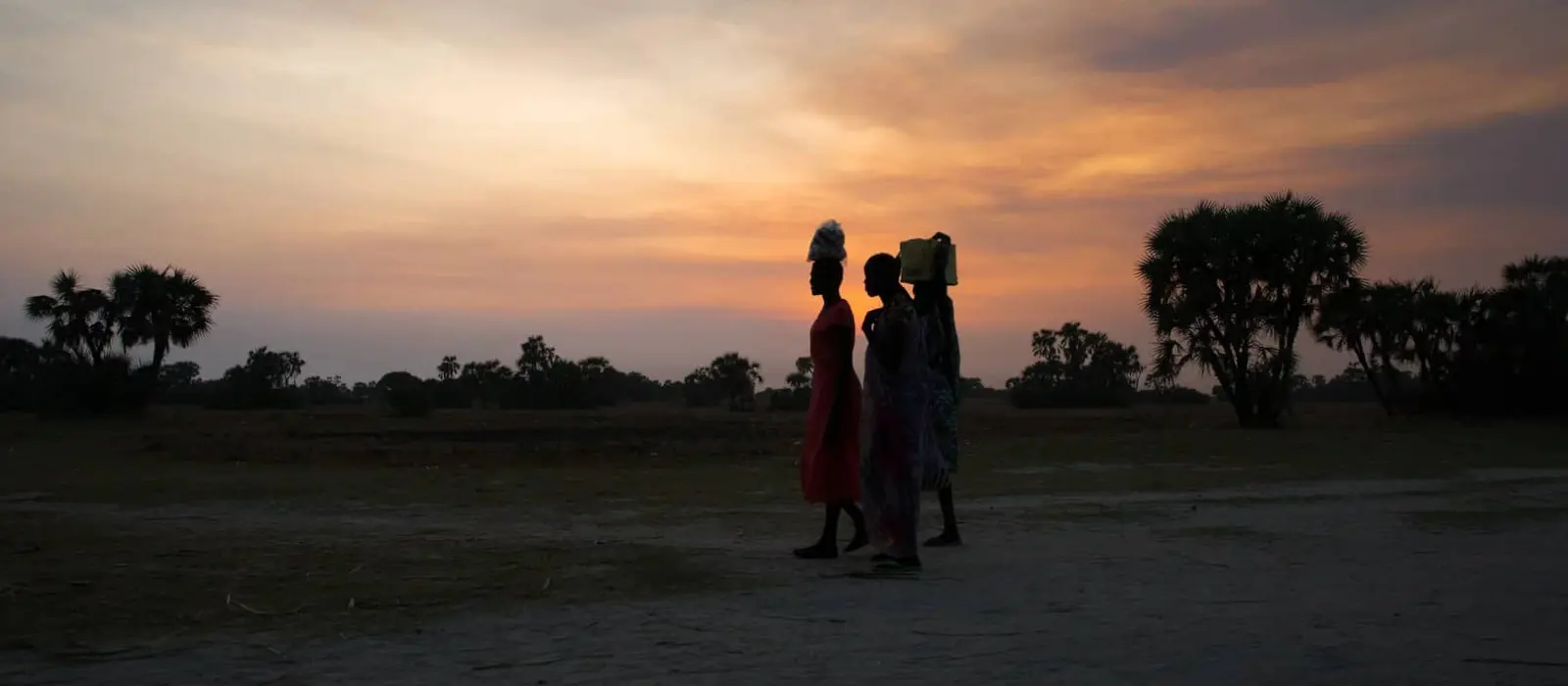The cycle of hunger runs from one generation to the next. In order to break it, we have to begin with expecting and new mothers, ensuring that they and their young children have the health and nutrition support they need. Here’s what that looks like in South Sudan in a photo essay from Abbie Trayler-Smith.
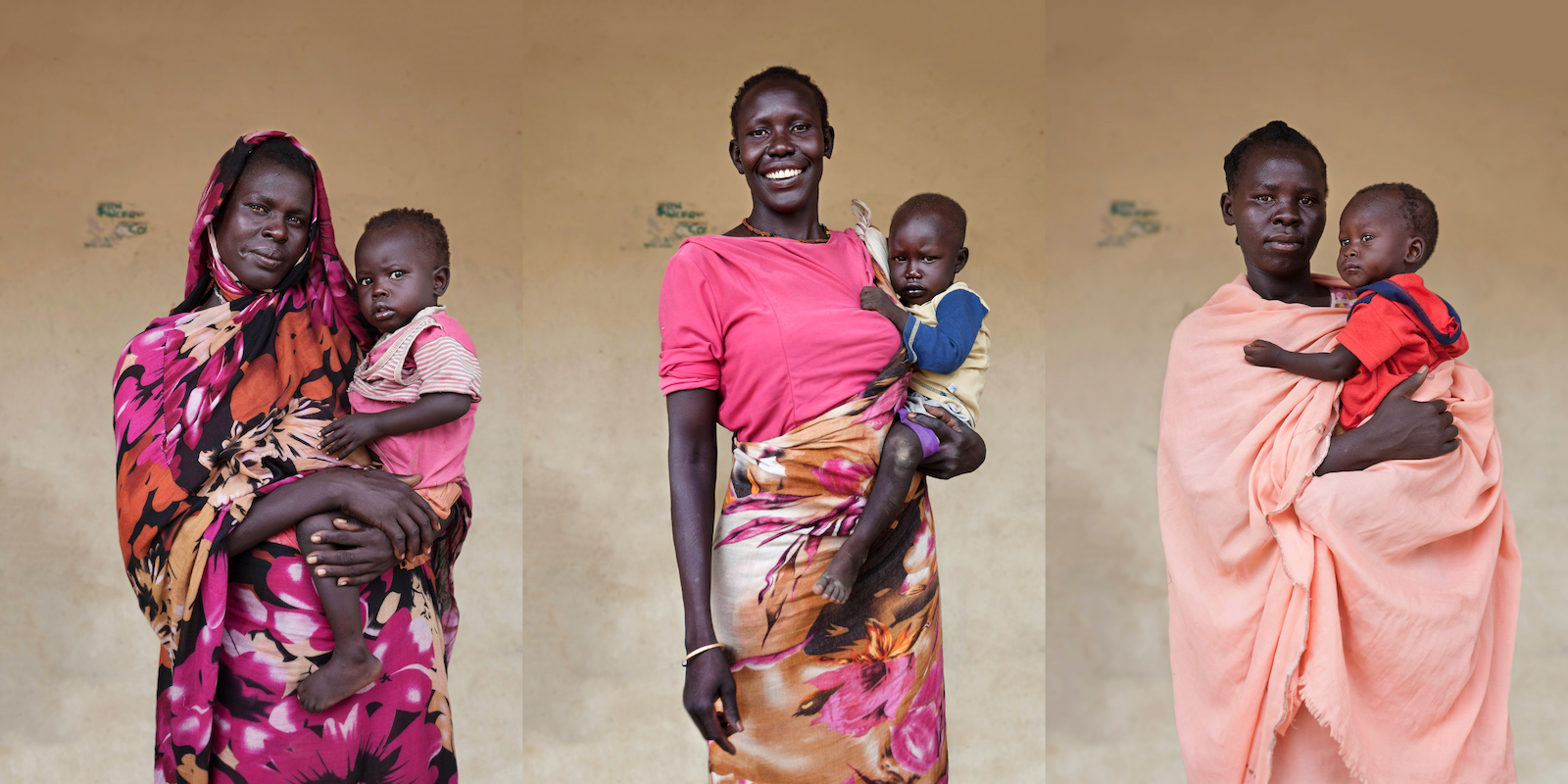
Google “hunger season in South Sudan” and you’ll find a span of months that varies from one source to the next, and over time seems to grow wider. The lean periods between harvests in the young country can begin as early as February, following January’s harvest, and stretch into the spring, returning again in the summer between May and July.
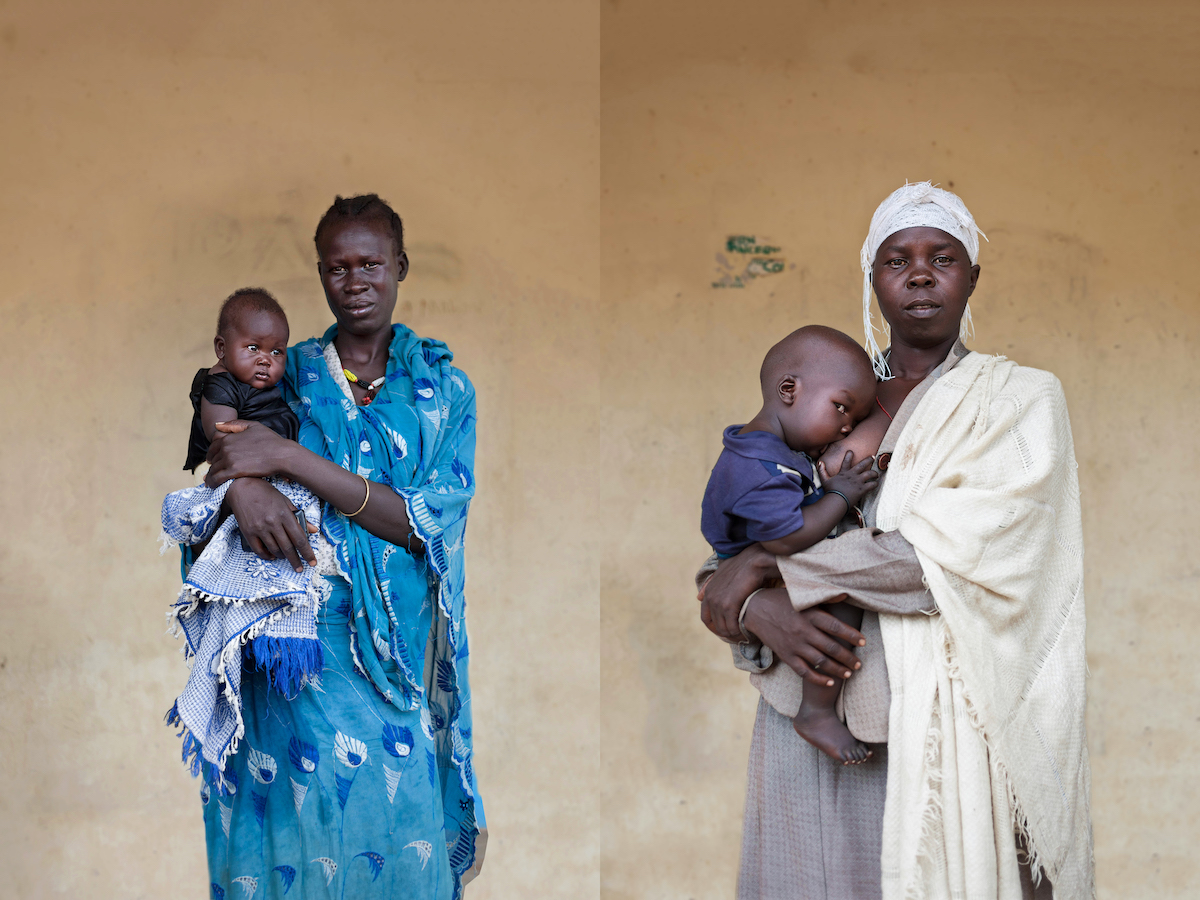
During South Sudan’s hunger season, the rate of malnutrition in areas like Aweil can be as high as 25-30%. The impact of this statistic is felt hardest by women and children, who are most vulnerable in the face of a food shortage. (The World Food Program estimates that 60% of people suffering from chronic levels of hunger are women and girls.)
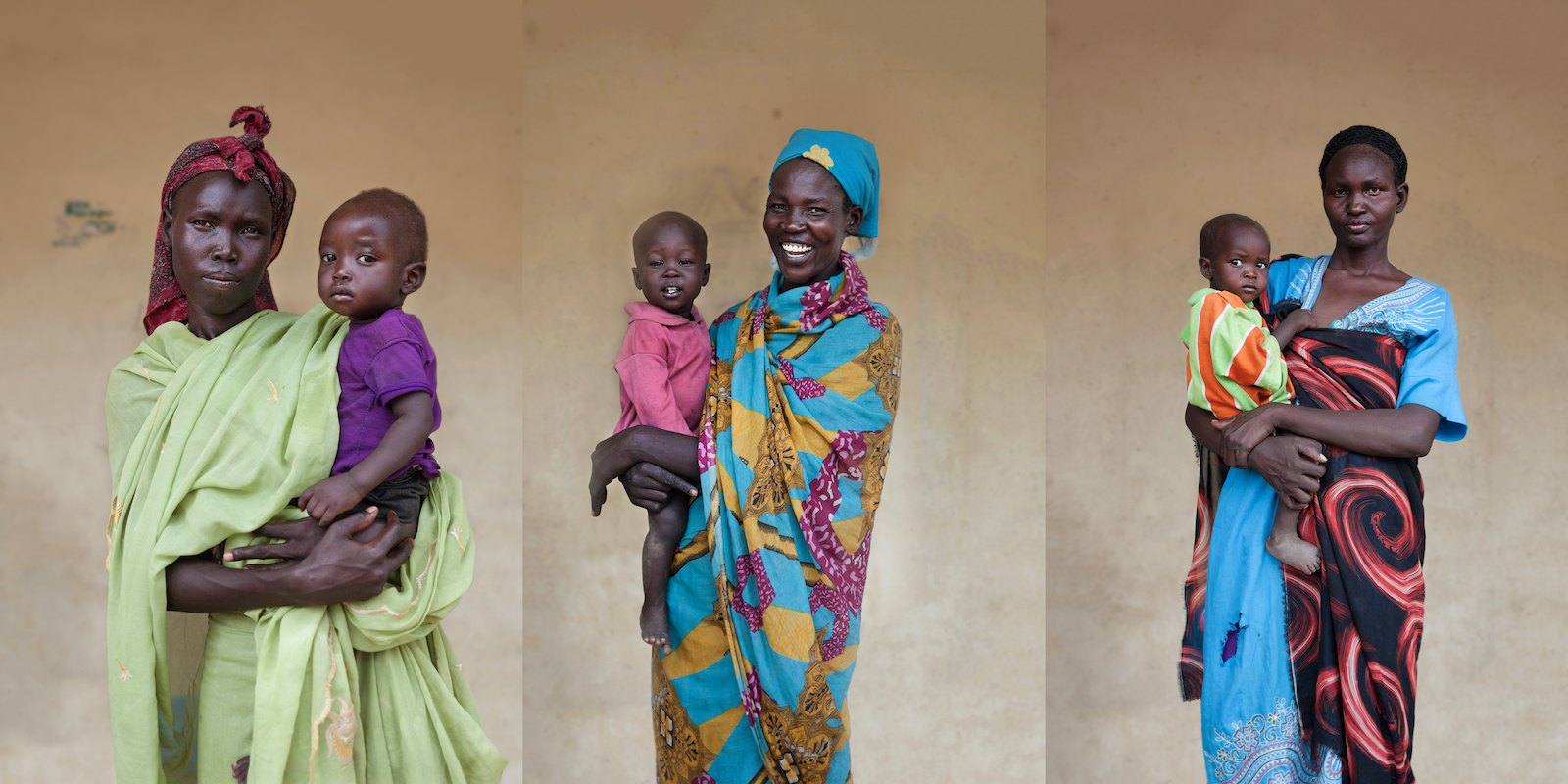
The humanitarian crisis in South Sudan has deepened and spread because of multiple and interlinked causes, including conflict and violence, severe economic decline, disease, and climatic shocks. As of 2019, 6.9 million people (61% of the population) did not have enough to eat. Many of these people are women and children. But from one generation to the next, priorities and communities can change and reach a greater overall sense of health, wellness, and economic independence. This can have a ripple effect beyond nutrition.
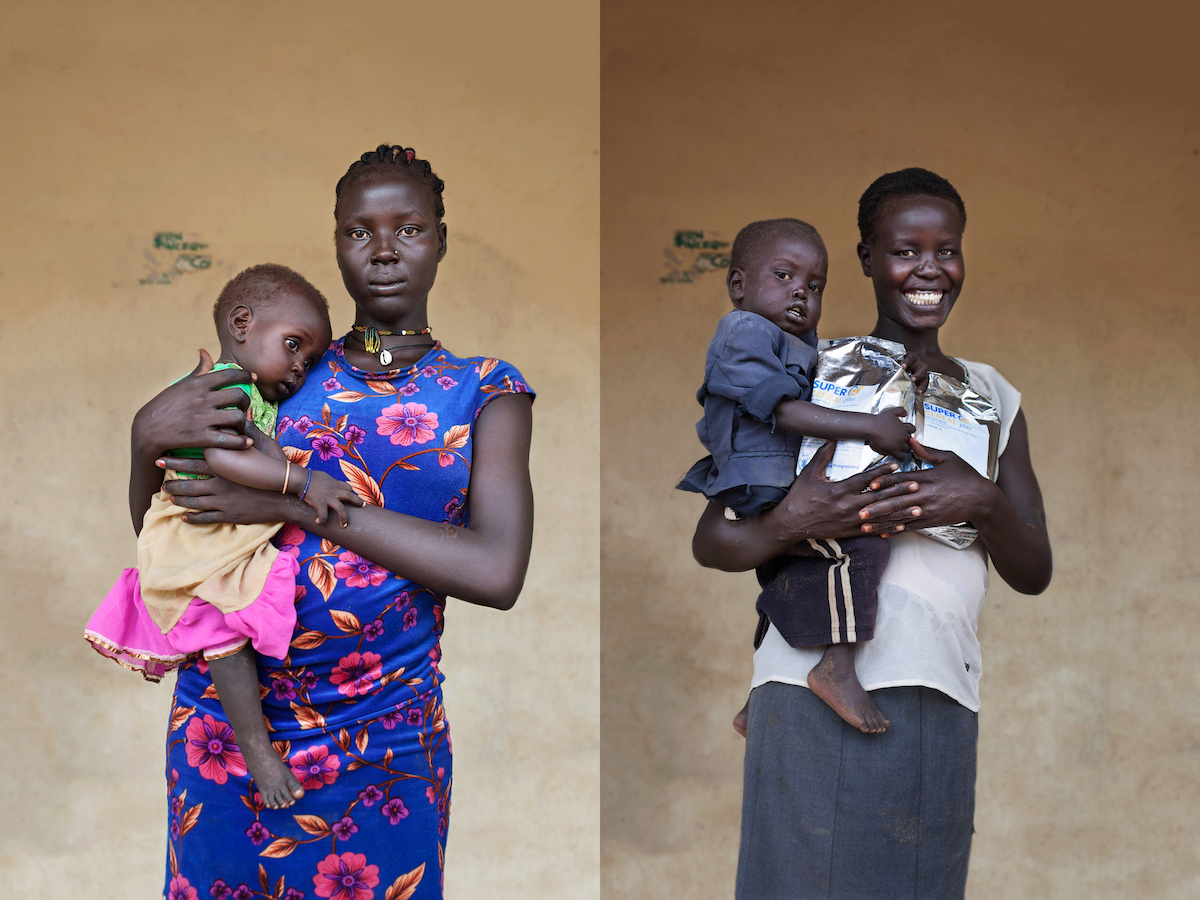
All of the mothers and children pictured here are being treated at a nutrition clinic for mothers and children that Concern has set up in Aweil. Our strategy for hunger and maternal health includes focuses on breastfeeding, prenatal nutrition and supplements, Vitamin A and preventative zinc for children, and managing severe and moderate acute malnutrition with therapeutic food.
When mothers bring their children to be screened at the clinic in Aweil, they first receive a 30-minute lesson on spotting symptoms of malnutrition and other good nutrition practices like breastfeeding.
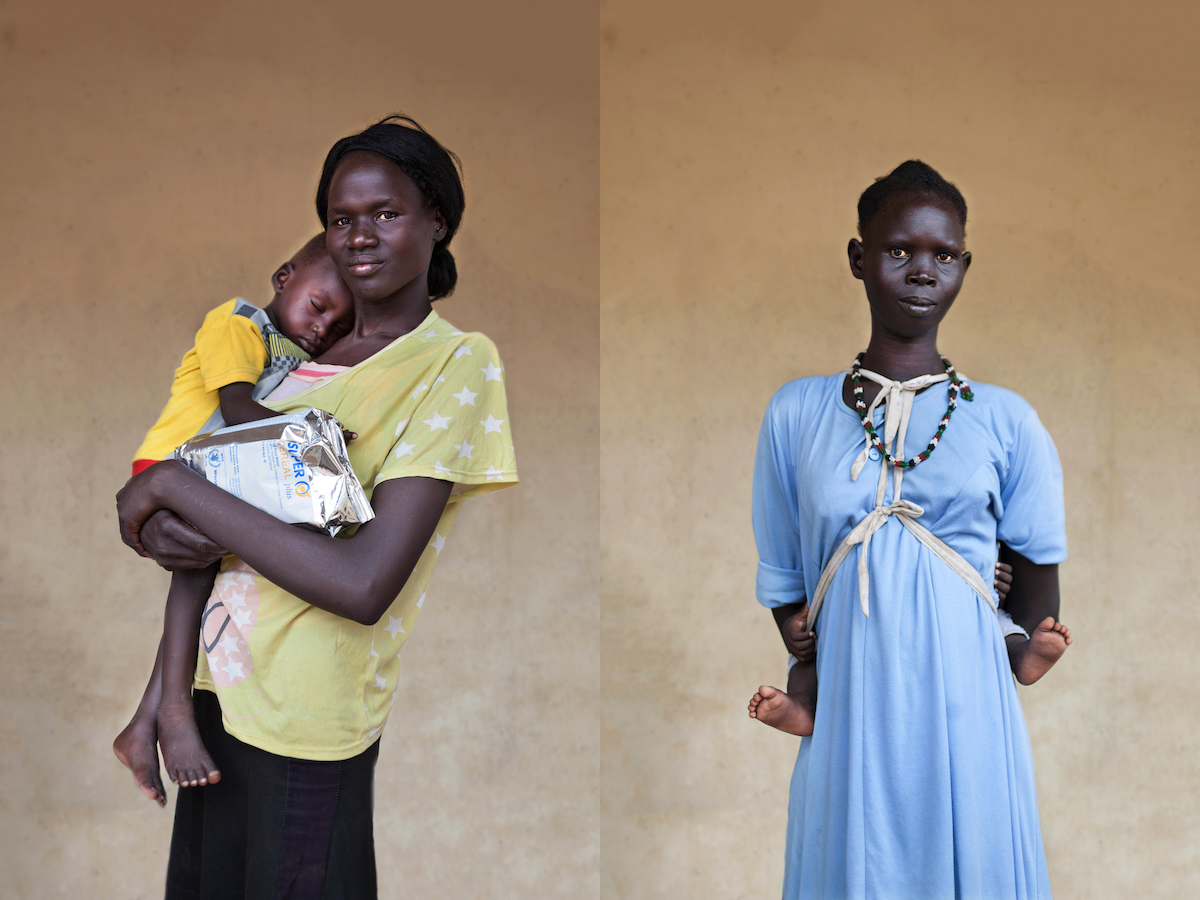
Concern Worldwide runs 7 mobile clinics and over 50 nutrition clinics in the immediate area for rural and vulnerable communities around the northwest region of South Sudan. If a mother and child are absent two times in a row, a house call is made by a community health worker. Thanks to the educational sessions that begin treatment, local mothers are also able to help their friends and neighbors be on the watch for malnutrition.
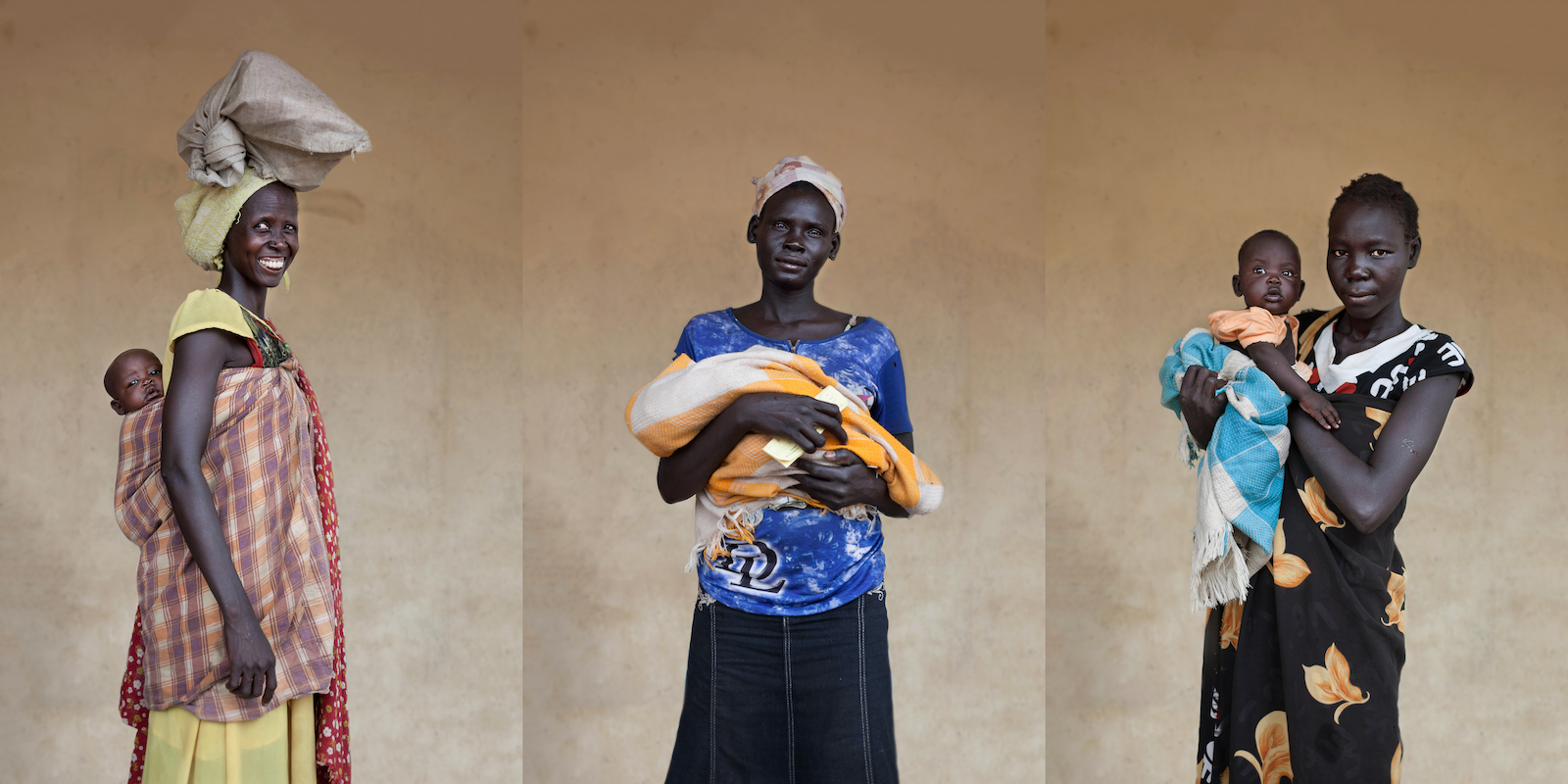
One of those mothers is Adeng (pictured below; left), who lives a short walk away from the clinic. Adeng’s four-year-old daughter Akecka has been in and out of Concern’s Outpatient Therapeutic Program (OTP) and Targeted Supplementary Feeding Program (TSFP) for a year, after being diagnosed with malnutrition. Her neighbors, who have also visited the nutrition center, were the first to tell her about Concern.
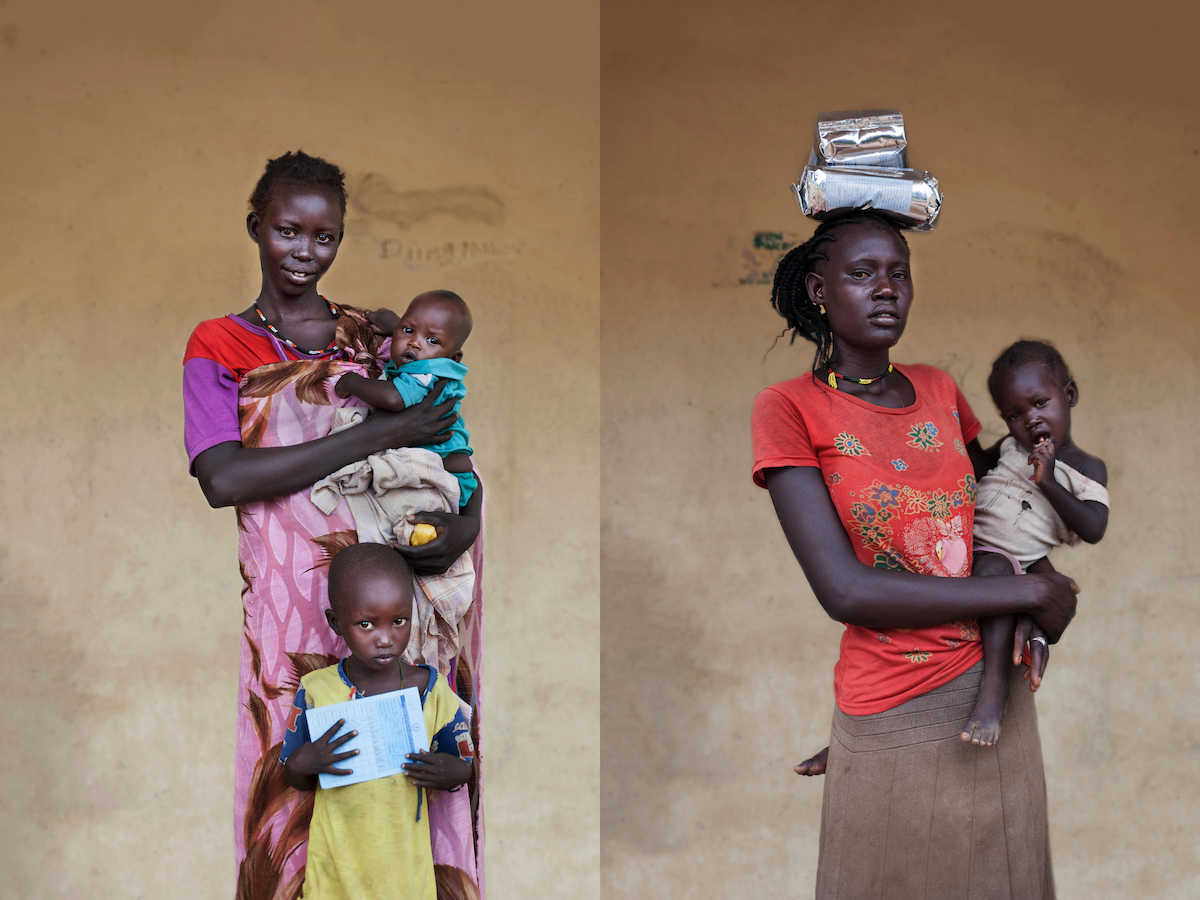
“When I first arrived, I was welcomed by Simon Pioul (Nutrition Assistant for Concern Worldwide), and Akecka’s measurements were taken and she was admitted. I felt better as soon as I got to the clinic. I felt a little bit calmer.” In addition to the education session, the clinic also provided Adeng with a card for the General Food Distribution list which supplies them with sorghum every six months.
Adeng is still worried for the future: “Water is available, the problem is food,” she explains. But she tells us she loves coming to the clinic. “If Concern wasn’t here, my child would have been worse. Concern is determined to help people in difficult situations.”
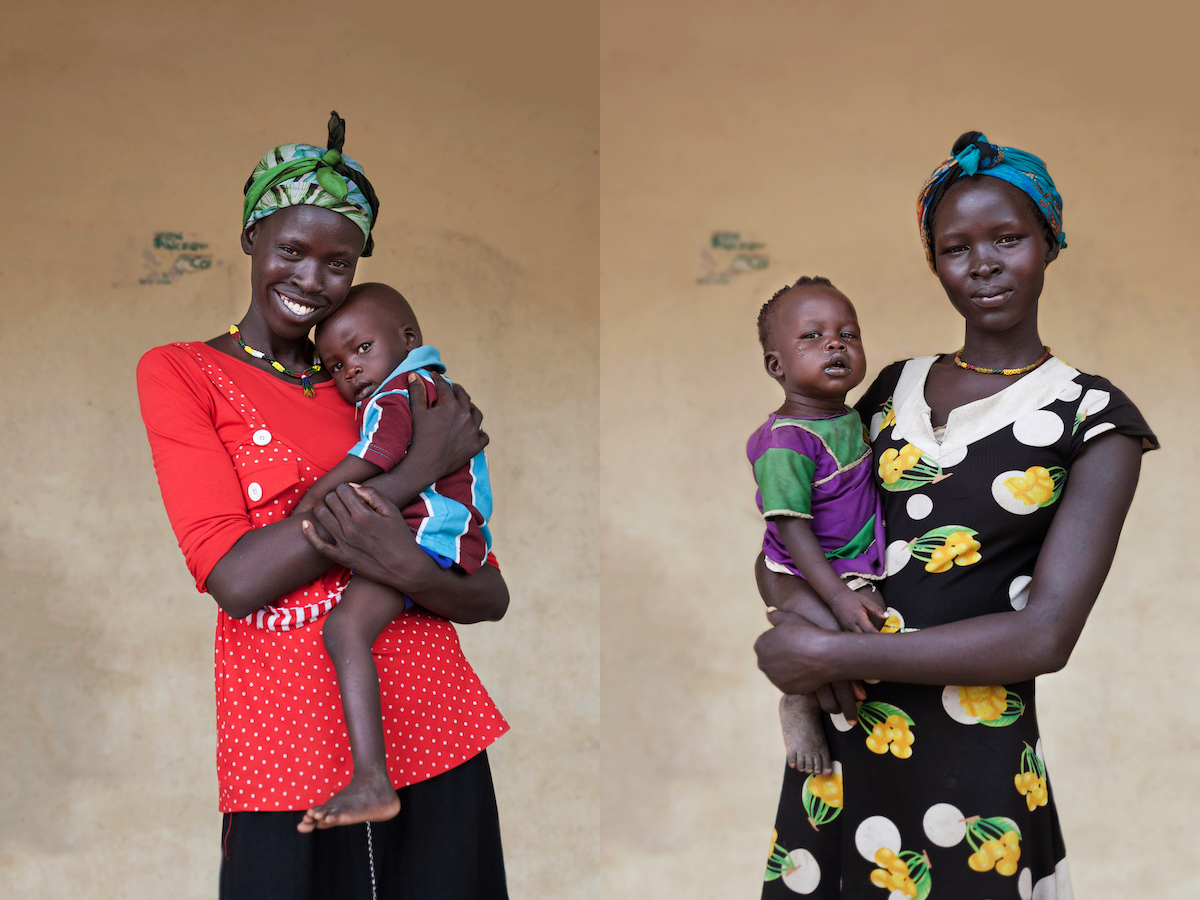
With over 7 million people facing hunger in South Sudan, about a fifth of this population are expected to be children under the age of 5 years old, who are more vulnerable to malnutrition due to the acute shortage of food. Your support can help us to do even more for South Sudan’s new generation.
Concern’s nutrition response focuses on the prevention and treatment of acute malnutrition among the most vulnerable groups such as children under 5 and pregnant and lactating mothers. This is through TSFP and OTP, as well as behavior change through promotion of maternal, infant and young child nutrition. Concern also provides food distribution in some areas, as well as cash for work, seed distributions and planting services.
Concern in South Sudan
Concern has been in South Sudan longer than the country has existed. Our recent work in the country has included:
- Providing lifesaving emergency nutrition and health services provided to acutely malnourished children and women, reaching over 142,000 people via 78 nutrition centers.
- Consulting and treating more than 68,000 children and mothers via our mobile clinics in five hard-to-reach areas in Aweil North and West counties, which also provided nutrition sessions for over 90,000.
- Reaching over 150,000 people in Unity State and Northern Bahr el Ghazal, including 34,000 people living in Bentiu displacement camp with water, sanitation, and hygiene interventions.
- Delivering nutrition support and sufficiency to 19,000 people who took part in cash-for-work activities and were also supported with hand tools and improved staple crop seeds.
- Improving water access for 49,000 people as a direct response to COVID-19.
However, this work is also under threat due to funding cuts. Your support of Concern — especially as a monthly donor — can help fill vital gaps left by large-scale donors, with $0.93 of every dollar going directly into our programs.

